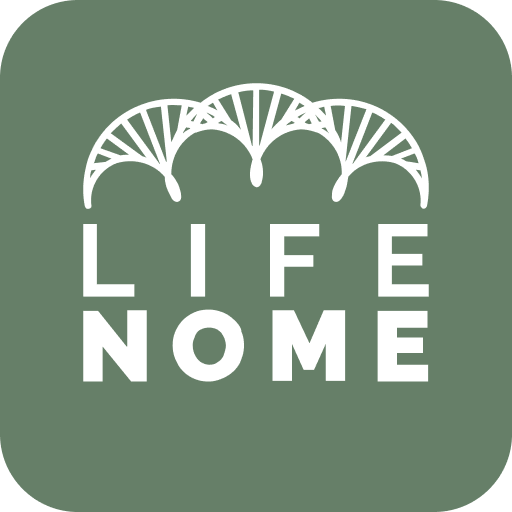
See how DNA insights can improve your client assessment
A simple saliva swab can give you the extra data you need to discover the hidden sources contributing to your client’s issues & symptoms.
From Data to Action: How Registered Dieticians use
DNA Reports To Improve Client Care
Meet Jen
-
Jen was referred to you by a colleague and is excited to undergo DNA analysis for her health. Here is a little background on Jen: She is 30 years old, works as a project manager, follows a vegetarian diet, experiences stress, is a single mother, and runs for fitness.
-
Jen experiences symptoms of frequent fatigue, irritability, brain fog, and nausea/bloating.
-
Jen's symptoms are disrupting her work. She wants to increase mental clarity and focus, reduce digestive discomfort, and feel normal again. Additionally, she wants to optimize her long-term health.
Health Strategy
-
Educate on vegetarian sources of B12 and factors that interfere with B12 absorption, such as low hydrochloric acid (HCl), alcohol consumption, and Proton Pump Inhibitors. Also, provide information on hidden sources of gluten, such as salad dressings, meat substitutes, and soups. If further assessment confirms gluten sensitivity, educate on the damaging effects of gluten intake, including a compromised gut lining and decreased B12 absorption.
-
Incorporate magnesium- and B12-rich foods to alleviate symptoms like brain fog, fatigue, nausea, and irritability. Magnesium-rich foods include dark chocolate, nuts, and seeds, while vegetarian B12 sources encompass eggs, yogurt, and nutritional yeast. Consider supplementation of B12 or B-complex vitamins as needed.
-
Further evaluate gluten sensitivity through tracking gastrointestinal symptoms, immune function biomarkers, or elimination diet procedures. Monitor and assess B12 status using laboratory tests such as serum B12, Holotranscobalamin (HoloTC), Homocysteine (Hcy), and Complete Blood Count (CBC) when considering supplementation.
Jen’s Outcome
After 8 weeks of tailored nutrition intervention, Jen feels markedly better, with improved mental clarity, reduced digestive issues, and relief from fatigue and irritability. Excited to feel more productive, she embraces the personalized approach, adopting new dietary recommendations for a balanced and fulfilling lifestyle.
LifeNome DNA Reports Are Built for Registered Dieticians like you
Enhance Client Confidence with Genomic Data
Genomics offers a unique way to engage clients. Communicate effectively with easy-to-understand reports, which can convey complex health information in a digestible manner. This approach highlights expertise and positions you as a leader in health science, increasing client confidence.
Diverse List of Traits
Utilize genetic insights on 80+ traits, including diet and metabolism traits, risk of micronutrient deficiency, skin health, risk of food sensitivity, fitness potential, and more.
Reports Made for Clients
Personalizing client material can be time-consuming and overwhelming. Ease your personalization process with LifeNome's tailored DNA reports for clients.
Each user-friendly report includes detailed trait insights, featuring:
Comprehensive trait overview
Analysis of genetic risk for trait expression
Comparative percentile ranking within the population
Number of assessed SNPs
General recommendations for trait management
Best in Class Trait Analysis
LifeNome’s polygenic risk analysis is a one-of-a-kind assessment tool that goes beyond single gene associations to understand complex pathways contributing to trait outcomes.
It considers the interaction of multiple processes, including digestion, absorption, nutrient utilization, and extraction, all in one risk assessment score, helping you provide more accurate intervention strategies.
LifeNome’s Partner Ecosystem
The LifeNome Science & Executive Team
As top-cited scientists, we know precision health. We have created the technology that companies all over the globe have used to successfully deliver more than 300,000 nutrigenomics & DNA assessments, a testament to our expertise, and commitment to improving health outcomes and supporting businesses.
Ali Mostashari, Ph.D. (MIT)
Co-Founder & CEO
Top 20 cited scholars in Complexity Science
$1.2B portfolio for UN Development Programme; 15+ Years in Tech R&DRaya Khanin, Ph.D. (Weizmann Institute)
Co-Founder & Chief Scientist
Top 10 cited scholars in Translational Bioinformatics
Memorial Sloan Kettering Cancer Hospital and Royal Society FellowshipMario Štorga, Ph.D. (University of Zagreb)
Co-Founder & VP of Engineering
Top 20 cited scholars in Semantic Networks
Professor at the University of Zagreb























